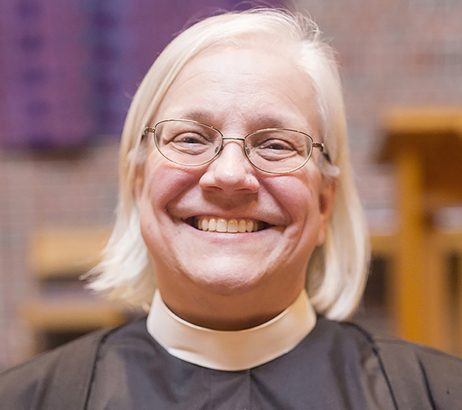“Welcome one another, therefore, just as Christ has welcomed you, for the glory of God.”
(Romans 15:7)
Because May is Mental Health Awareness Month in the United States, this week I’m sharing a letter we received here at Trinity.
Seminary students:
My name is [omitted] and I live in [omitted]. My plan was to visit all the seminaries in the ELCA (my bucket list). So I decided to write a letter to talk with you about mental illness. It is not as bad as you see on TV. Most people with mental illness want to belong in their communities. I am lucky that the church I belong to sees me for me and not for my mental illness. I even have some jobs (lighting candles and ushering) and on the planning committee. I have schizoaffective disorder, bipolar type and I always take my medication whether I am feeling good or not. Now the reason I am writing this letter is when you graduate and accept your call, reach out and make a person with mental illness feel welcome in your church. I may never know if anyone reaches out but I hope you do.
Here is my sadness. My correspondent chose not to include a return address. I understand that choice, given the stigma that people living with mental illness all too often experience in our society. But if I had a return address, I would have written to him to thank him for reaching out and sharing his experience.
When my correspondent writes, “It is not as bad as you see on TV,” I think part of what he is saying is “You don’t need to be afraid of me.” As the sister of someone living with chronic schizophrenia, I know that people often react to mentally ill individuals out of ignorance and out of fear. Years ago, when my mother advocated for the establishment of a group home for mentally ill persons in our community, people in the neighborhood protested, “We want our children to be safe.” My mother’s response: “I want my child to be safe, too!”
According to the National Alliance on Mental Illness (NAMI), one in 5 adults in the U.S. experiences some form of mental illness in any given year, and one in every 20 adults is living with a serious long-term mental health condition. Each one of these individuals, like my correspondent and like my brother, is a beloved child of God, made in God’s own image.
I’ll end by echoing my correspondent’s words:
Reach out and make a person with mental illness feel welcome in your church and in your community. I may never know if anyone reaches out but I hope you do.
The Rev. Kathryn A. Kleinhans, Ph.D.
Dean
Trinity Lutheran Seminary forms leaders for Christ’s church at work in the world.



